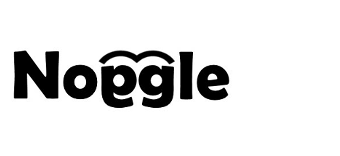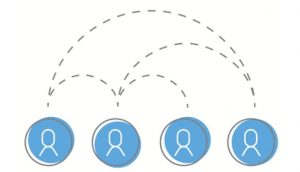How to share, retain and protect knowledge in the gig economy
The gig economy. The sharing economy. The collaborative economy.
Whichever name you opt for, ‘on-demand’ employment is changing the way we work. Uncertain economic times are forcing companies to constantly strive to achieve better productivity using fewer resources, shifting to a transactional model of using increasingly short term and less demanding forms of labour with contractors and gig workers. In order to cut costs, freelancers are seen as a favourable replacement for the ongoing commitment of full time employees, with many workers now finding themselves reluctantly working in the gig economy for want of secure, skilled positions.
But by regularly exchanging lasting employee development for ‘pay as you go’ stop gaps, are companies losing the core of the wider strategy they wish to execute – the institutional knowledge that is embedded into the long term workforce and culture of an organisation?
The risk of frequent changeovers
These frequent changeovers at the front-line of a business means there is a risk that valuable knowledge is retained only at the top of the hierarchy. With so many gig workers now coming and going through the doors, temporary workers are bringing, and taking, knowledge which is just that – temporary. Every time a new joiner leaves again, knowledge is lost. The type of knowledge that is escaping can be categorised as that which can be written down, and that which can’t, the latter being the form that will simply ‘leak’ out of the organisation without better knowledge retention activity.
As such, is this ‘knowledge leakage’ negating our interest in fully training and engaging with temporary staff, knowing as we do that they will be leaving us shortly? Without emphasising the need to retain knowledge at ground level, no matter how long a contract is, independent workers become interchangeable, learning nothing of the institutional knowledge that is integral to the entire operation.
As well as discouraging us to impart value through knowledge, it may be that the use of gig workers isn’t giving us the ultimate value in receiving knowledge in return.
“Are you a giver or taker? Success is not about competition- it’s about contribution.” by Adam Grant
Adam Grant just recently gave a TED Talk about strategies to promote a culture of generosity and keep self-serving employees from taking more than their share. Watch here: TEDTalk
Contractors may be hired in a targeted manner based on the outcomes they can produce and the skills and experience they bring, but is such a short time frame limiting our ability to truly discover and utilise the extent of what our freelancers really know?
A centralised approach does not work
In this light, a centralised approach to document management does not work – our attempts must be to encourage our gig workers to be transparent in the sharing of their knowledge. Contractors are unlikely to submit their documents and ‘give away’ their knowledge to centralised areas where they have no control over the end user who accesses it once they have moved on. In this new sharing economy, it is essential to have the best systems at our disposal for efficient accessing, retrieval and transfer of the things we know, and the documents they’re stored in.
But it isn’t just external knowledge workers that need to be given the most relevant and practical tools for sharing their information within a gig economy. The most accurate insights and information are often to be found from within the company – the internal workforce and management structure that experience the product, customers and business transactions on a daily basis, over the course of years are likely to provide the best ideas for the progression of the organisation as a whole. When continually outsourcing for strategies and concepts, businesses run the risk of actually outsourcing all of their knowledge, and overlooking the assets of their own network of thinkers and employee intelligence. Ensuring that these resources are located and utilised correctly with transparent information sharing will allow organisations to keep institutional knowledge alive during a gig economy, and leverage the knowledge of in-house and temporary workers alike.
Noggle is the knowledge management solution that works with the gig economy.
In a contractor climate, you need document management software that suits the way we do business today, not yesterday. Noggle creates a secure peer network that syncs and connects disparate locations, so that locating and retrieving files is now the work of moments, not minutes, allowing you to make the most of the knowledge brought to you by freelancers and employees alike. Search and share new depths of content, and easily collaborate on inspiring ways of working. To see how Noggle could make a difference to the way that you manage the files that matter, install our free trial.


